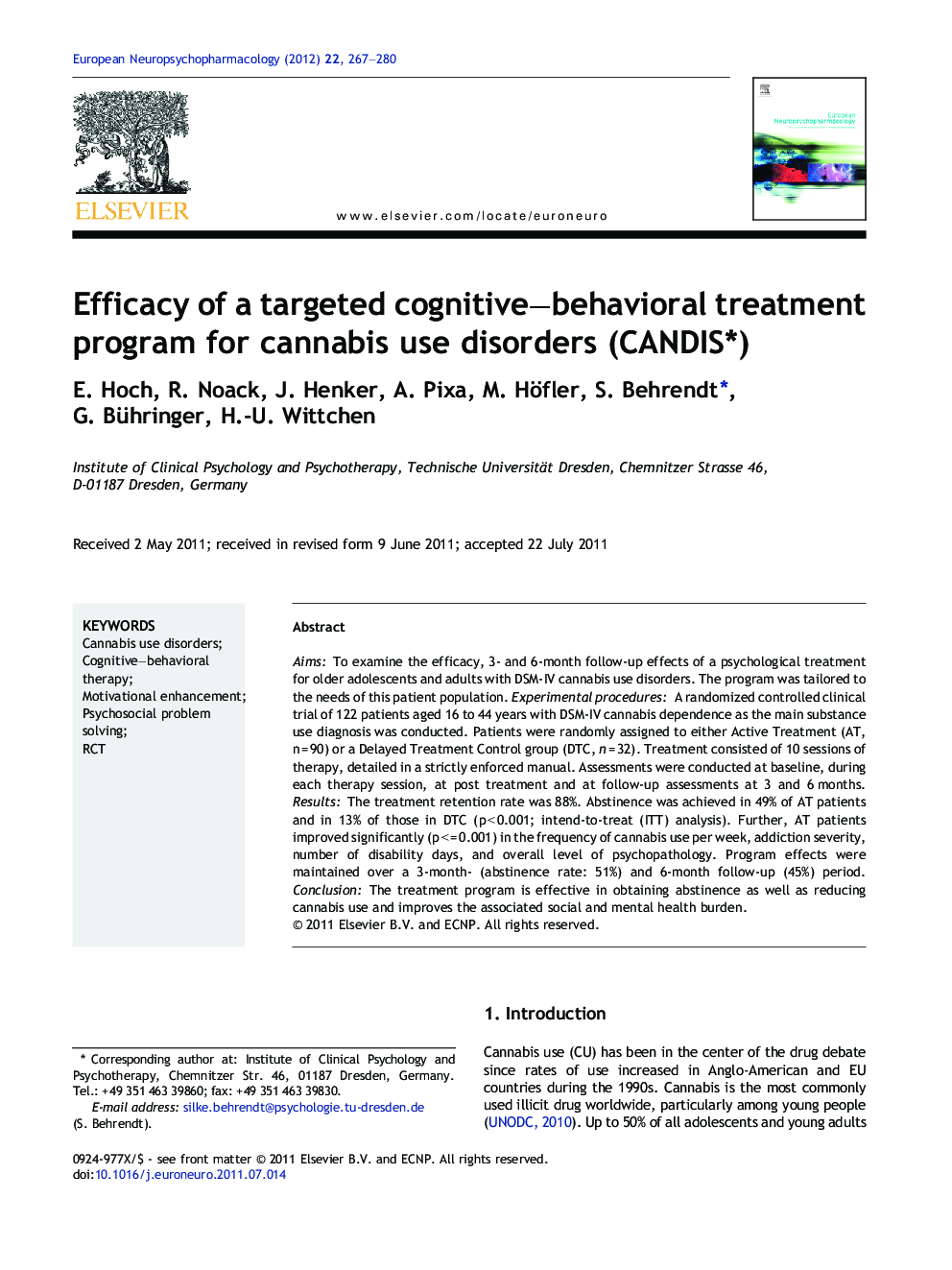| Article ID | Journal | Published Year | Pages | File Type |
|---|---|---|---|---|
| 318925 | European Neuropsychopharmacology | 2012 | 14 Pages |
AimsTo examine the efficacy, 3- and 6-month follow-up effects of a psychological treatment for older adolescents and adults with DSM-IV cannabis use disorders. The program was tailored to the needs of this patient population.Experimental proceduresA randomized controlled clinical trial of 122 patients aged 16 to 44 years with DSM-IV cannabis dependence as the main substance use diagnosis was conducted. Patients were randomly assigned to either Active Treatment (AT, n = 90) or a Delayed Treatment Control group (DTC, n = 32). Treatment consisted of 10 sessions of therapy, detailed in a strictly enforced manual. Assessments were conducted at baseline, during each therapy session, at post treatment and at follow-up assessments at 3 and 6 months.ResultsThe treatment retention rate was 88%. Abstinence was achieved in 49% of AT patients and in 13% of those in DTC (p < 0.001; intend-to-treat (ITT) analysis). Further, AT patients improved significantly (p < = 0.001) in the frequency of cannabis use per week, addiction severity, number of disability days, and overall level of psychopathology. Program effects were maintained over a 3-month- (abstinence rate: 51%) and 6-month follow-up (45%) period.ConclusionThe treatment program is effective in obtaining abstinence as well as reducing cannabis use and improves the associated social and mental health burden.
